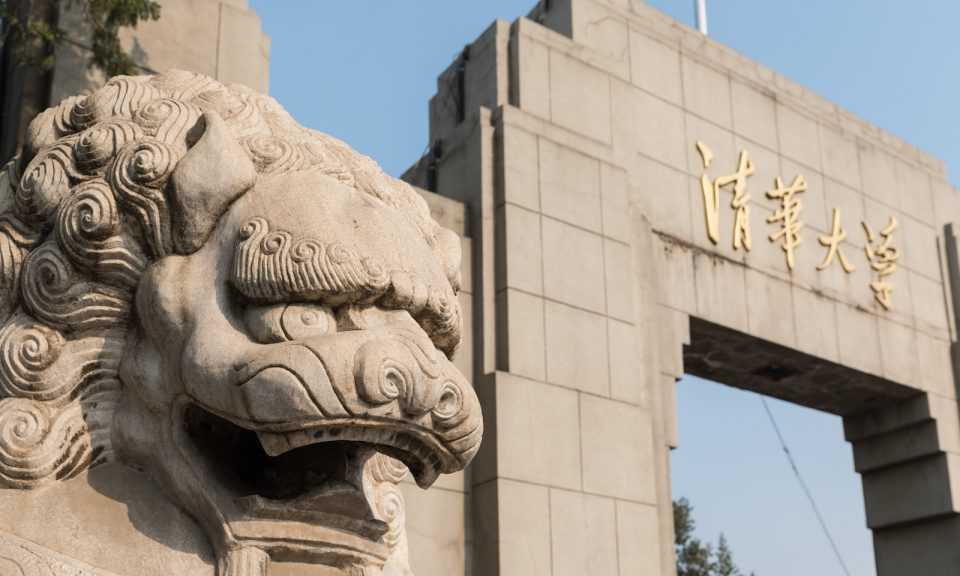President Xi Jinping’s policies trigger an academic backlash in China
08 August, 2018

In the seaside resort of Beidaihe in Hebei province, the temperature was a balmy 25 degrees Celsius on Thursday with occasional cooling showers.
But in Beijing, it was distinctly frosty as domestic dissent in China echoed through cyberspace and the trade cold war with Washington showed no signs of thawing.
Nearly 260 kilometers, or 161 miles, from the hustle and bustle of China’s capital, the Communist Party elite, including President Xi Jinping and Premier Li Keqiang, gathered for their summer working vacation.
Since the days of Chairman Mao Zedong, this coastal scenic spot has become a place to relax while talking about the major issues of the day.
For the rest of the week, there will be plenty to discuss and digest, apart from the sumptuous spreads at a succession of late night dinners.
Hammering home the CCP line will be top of the agenda following a divergence of opinion from liberal-minded academics, and economists.
Already Xinhua, the official government news agency, the People’s Daily, the mouthpiece of the ruling Communist Party and the most influential newspaper in China, and its English-language tabloid Global Times have fired warning shots across the bows of academic institutions.
‘Patriotic spirit’
“The [CCP] has initiated a campaign to promote a ‘patriotic striving spirit’ among the country’s intellectuals,” Xinhua reported. “The campaign aims to rally outstanding intellectuals for ‘the pursuing of the great endeavor of the Party and the people.’
“The campaign will focus on young and middle-aged intellectuals, with activities such as media promotion, study and discussion sessions, special training and promotion of exemplary models, according to a statement from the [CCP] and publicity departments [the former Ministry of Propaganda],” it added.
A front-page editorial in the People’s Daily went even further, pointing out that the main aim of the “campaign” was to “make the vast numbers of intellectuals … to determinedly [sic] follow the party.”
Su Wei, a professor at the Party School of the Chongqing Committee of the CCP, was just as forthright in the Global Times. Su insisted that “China’s patriotic education has faded in recent years, which has led to many abnormal phenomena,” without explaining the last remark.
Still, the clampdown comes at a time when distinguished Chinese academics are starting to question Xi’s overarching domestic policies and high-profile global projects, such as the controversial Belt and Road Initiative.
Xu Zhangrun, a professor of constitutional law at the influential Tsinghua University, spelled out the hard facts in an essay on the website of the Unirule Institute of Economics, an independent think tank in Beijing.
“People nationwide, including the entire bureaucratic elite, feel once more lost in uncertainty about the direction of the country and about their own personal security, and the rising anxiety has spread into a degree of panic throughout society,” he wrote.
A fellow colleague at Tsinghua University, Sociology Professor Guo Yuhua touched on the same subject in an interview covered by Baidu, the online search engine giant, which is part of the BAT grouping of Alibaba and Tencent.
She talked about how the “current demonization of democratization has been very successful” and how there has been no “change in the political system and ideology.”
“The economic system has shifted from a planned economy to a market economy, but there has not been a corresponding change in the political system and ideology,” Guo said. “The reason for the lack of change is the enormous resistance caused by the suppression of power.
“This will inevitably lead to the tearing of the giant of China, one leg going forward, striding into the market economy, while the other leg is slamming backward,” she added.
Even the Great Firewall has failed to stifle debate on the future of the country with the internet crackling with different viewpoints.
Trade war
Indeed, a few might crop up at Beidaihe this week as senior Party officials grapple with the deepening trade war with the United States while realigning a cooling economy and pushing ahead with the controversial “Made in China 2025” policy, as well as the trillion-dollar Belt and Road Initiative.
At the same time, a public dispute has emerged between the People’s Bank of China, the de facto central bank, and the Ministry of Finance on how to generate growth while reining in corporate and local government debt.
“China is extraordinarily fragmented, with a billion different individualized networks created by social media, and a middle class focused relentlessly on what works for them,” Kerry Brown, a professor of Chinese Studies and a director of the Lau China Institute at King’s College in London, said in an opinion piece for Inside Story.
“It’s not that they are brainwashed and made docile by party messages – it’s that they have in many ways moved beyond believing anything larger about the society around them. They buy into a strong, powerful China because it means security and wealth. They like the status this gives,” he continued on the media website founded by the Swinburne University of Technology in Australia.
“But Chinese society is moving into an era in which, as those material benefits become increasingly widespread, issues of meaning and value will come to the fore and demand something more than simple economic solutions,” Brown, whose new book, China’s Dreams: The Culture of the Communist Party of China and Its Secret Sources of Power, will be published next month, added.
Naturally, it is open to conjecture where those points will be discussed by the inner circle of the Politburo over hors d’oeuvres on the Beidaihe beachfront in the next few days.
TAG(s):
